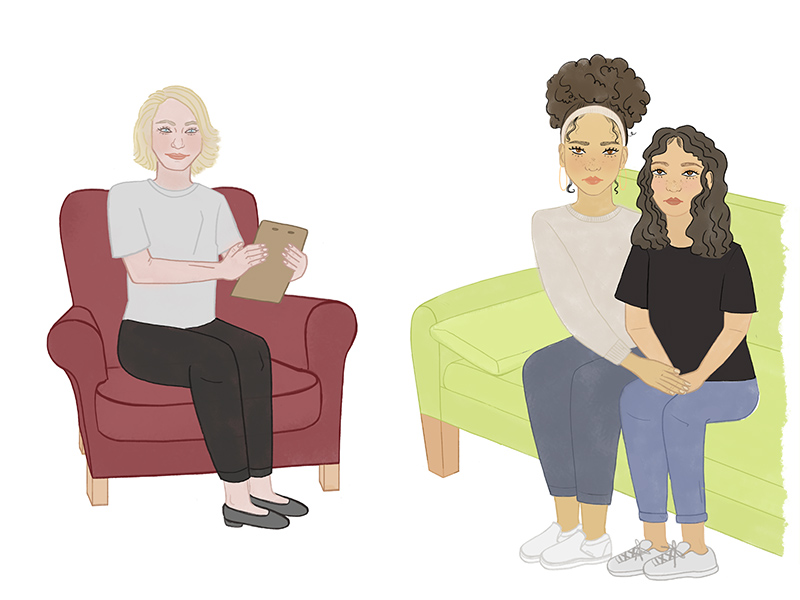





Chapter 1. The Stress Continuum Copy

Tasha and her mother enter the room but stay standing near the door. Tasha’s dark eyes dart here and there—her anxiety is palpable.
“Hi Tasha, how are you doing today?” you ask warmly.
“Okay,” she shrugs.
You smile and motion Tasha and her mother toward their seats. “How has everything been since the last time we spoke?”
“Just stressed,” she mumbles. “As usual.”
“Okay. Well, today we were going to take time to talk about stress—what it is and how it develops. What do you think?”
Tasha returns your gaze, but doesn’t respond.
“I’d like to start by asking if you can describe to me what you think stress is.”
Tasha fidgets in her seat and scrunches her forehead. “Stress is, like… when you’re very worried?”
“Mm-hmm, tell me more. Can you give me an example of a time when you felt stressed?”
“I don’t know, I feel weird like that all the time,” Tasha blurts. “Ugh which can make me think I’m going crazy.”
You remain still.
Tasha sighs. “It’s like a tension. I can’t breathe, and I feel shaky. I don’t know, it’s upsetting because I don’t have any control over it.”
She looks away and crosses her arms. “Those are very common signs of stress,” you explain, “not something crazy or ‘weird.’ People can have many different reactions to stress: thoughts, or a feeling, or a physical sensation, or even behavior.” Tasha’s gaze continues to trace the ceiling. “Has there ever been a time when you experienced stress, but it was helpful to you?”
Tasha looks at you. “Helpful? I don’t think so…”
“You know, a small amount of stress, believe it or not, can actually do some good,” you say with a bright smile. “It can motivate us. It can help us adapt.”
“Well,” Tasha uncrosses her arms. “I guess at school, when I have a test…I get stressed about it, so I study to try to get an A.”
“That’s a great example! What if we think about the other extreme? What if you were studying too much for the exam? Staying up all night, and skipping breakfast to study?” Tasha turns her face to you with curiosity. “How do you think you’d do on the day of the test?”
“I’d… probably be too tired.”
“That’s right, and your brain might be totally fried, wouldn’t it? Even if you know the information.”
Tasha nods emphatically.
“So too much stress can also be bad for us,” you continue, producing a pen and notepad to hold up in front of Tasha. “Imagine stress as occurring along a curve. On one side, there’s a positive stress response, the beneficial kind. But then, on the other side, there’s toxic or traumatic stress.”
Tasha focuses intently on the paper.
“All that stress we carry adds up, like a weight that we call ‘allostatic load.’ Sometimes the weight of the allostatic load over time can get to be too much—there’s a limit to how much stress we can handle.”
“Allostatic load.” Tasha repeats to herself. “Is that what happened to me? My ‘allostatic load’ is too much?”
“That’s correct,” you answer softly. “You explained that you’ve had a few major things that happened in your life, with your uncle and your cousins. Those weren’t normal day-to-day stressors. They were traumatic events. When those happen, they pile up and up until your mind and body tell you, ‘This is too much!’ So it makes total sense that this kind of compounding stress over time would eventually take a toll.”
“I don’t know,” Tasha mutters, “I wish I could be stronger.”
“Everyone’s limit is different. These things really depend on your biology and genetics, even past experiences. Some people are better at managing stress than others, sometimes because they’ve had more practice or help, other times because the people around them practice healthy coping. But none of this is to say that you’re doing a worse job than others.”
